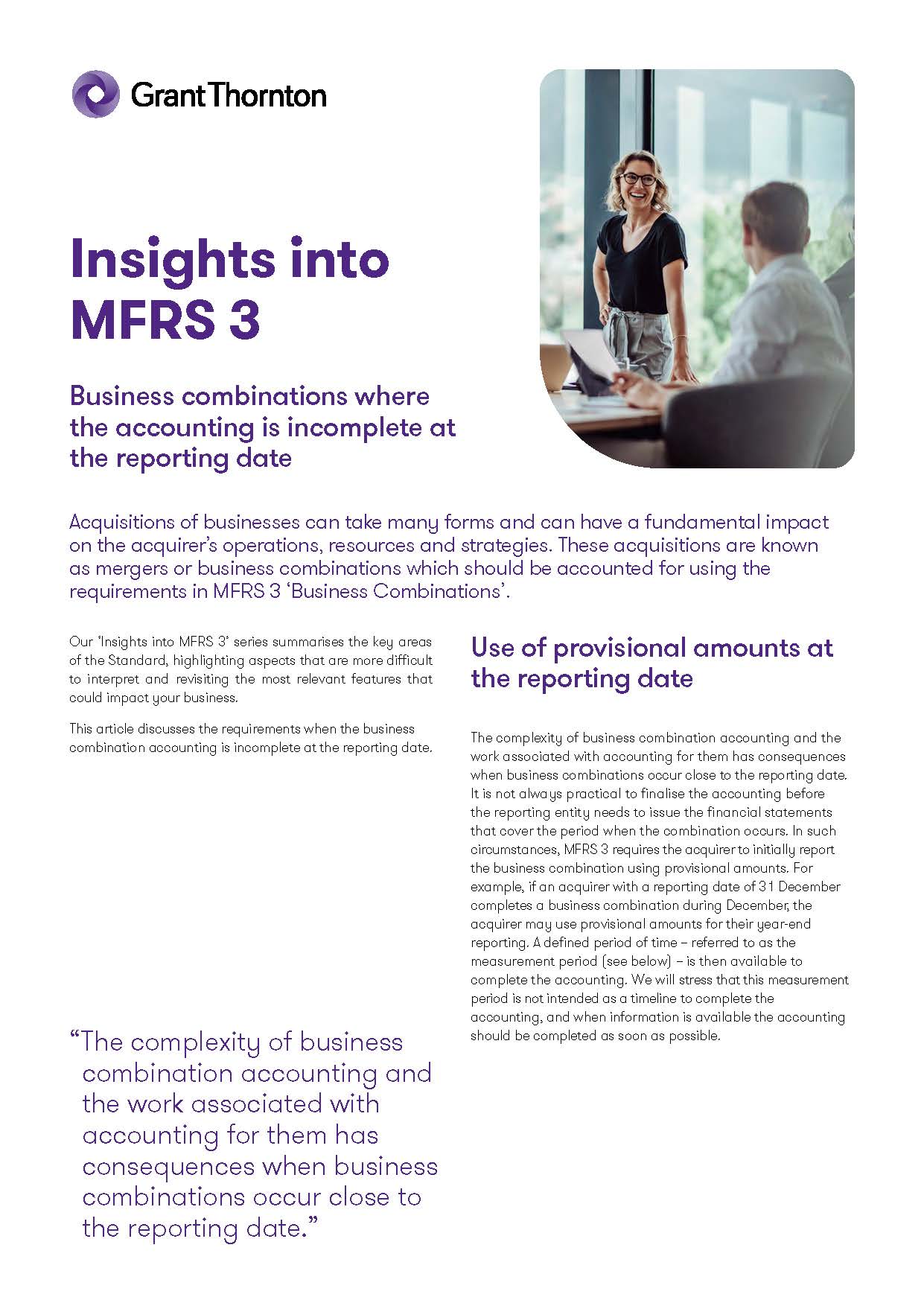
Our ‘Insights into MFRS 3’ series summarises the key areas of the Standard, highlighting aspects that are more difficult to interpret and revisiting the most relevant features that could impact your business.
This article discusses the requirements when the business combination accounting is incomplete at the reporting date.
Use of provisional amounts at the reporting date
The complexity of business combination accounting and the work associated with accounting for them has consequences when business combinations occur close to the reporting date. It is not always practical to finalise the accounting before the reporting entity needs to issue the financial statements that cover the period when the combination occurs. In such circumstances, MFRS 3 requires the acquirer to initially report the business combination using provisional amounts.
For example, if an acquirer with a reporting date of 31 December completes a business combination during December, the acquirer may use provisional amounts for their year-end reporting. A defined period of time – referred to as the measurement period (see below) – is then available to complete the accounting. We will stress that this measurement period is not intended as a timeline to complete the accounting, and when information is available the accounting should be completed as soon as possible.
"The complexity of business combination accounting and the work associated with accounting for them has consequences when business combinations occur close to the reporting date.”

Insights into MFRS 3
Read the full publication about 'Business combinations where the accounting is incomplete at the reporting date' by downloading it here.
How we can help
We hope you find the information in this article helpful in giving you some insight into MFRS 3. If you would like to discuss any of the points raised, please do not hesitate to contact us.
